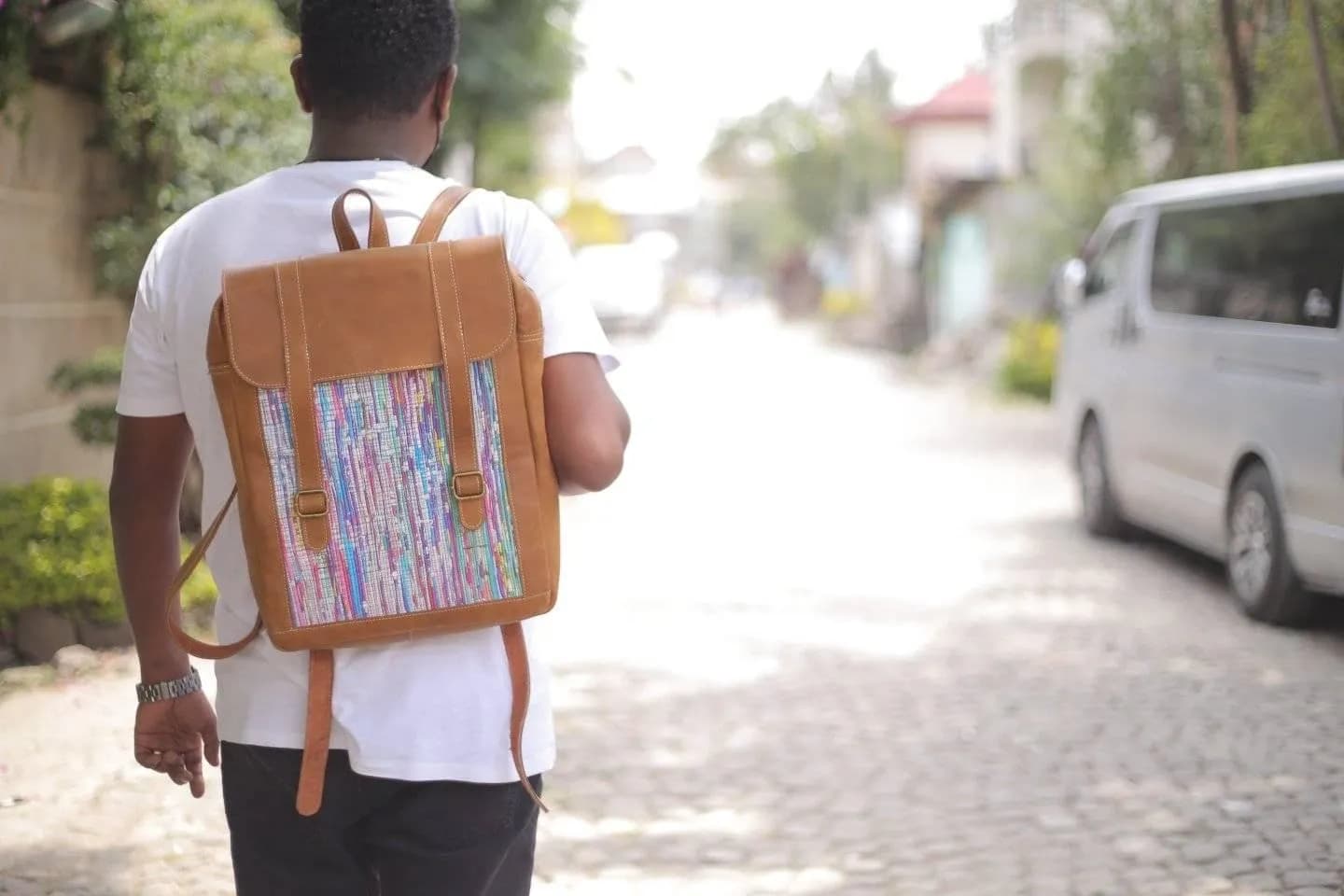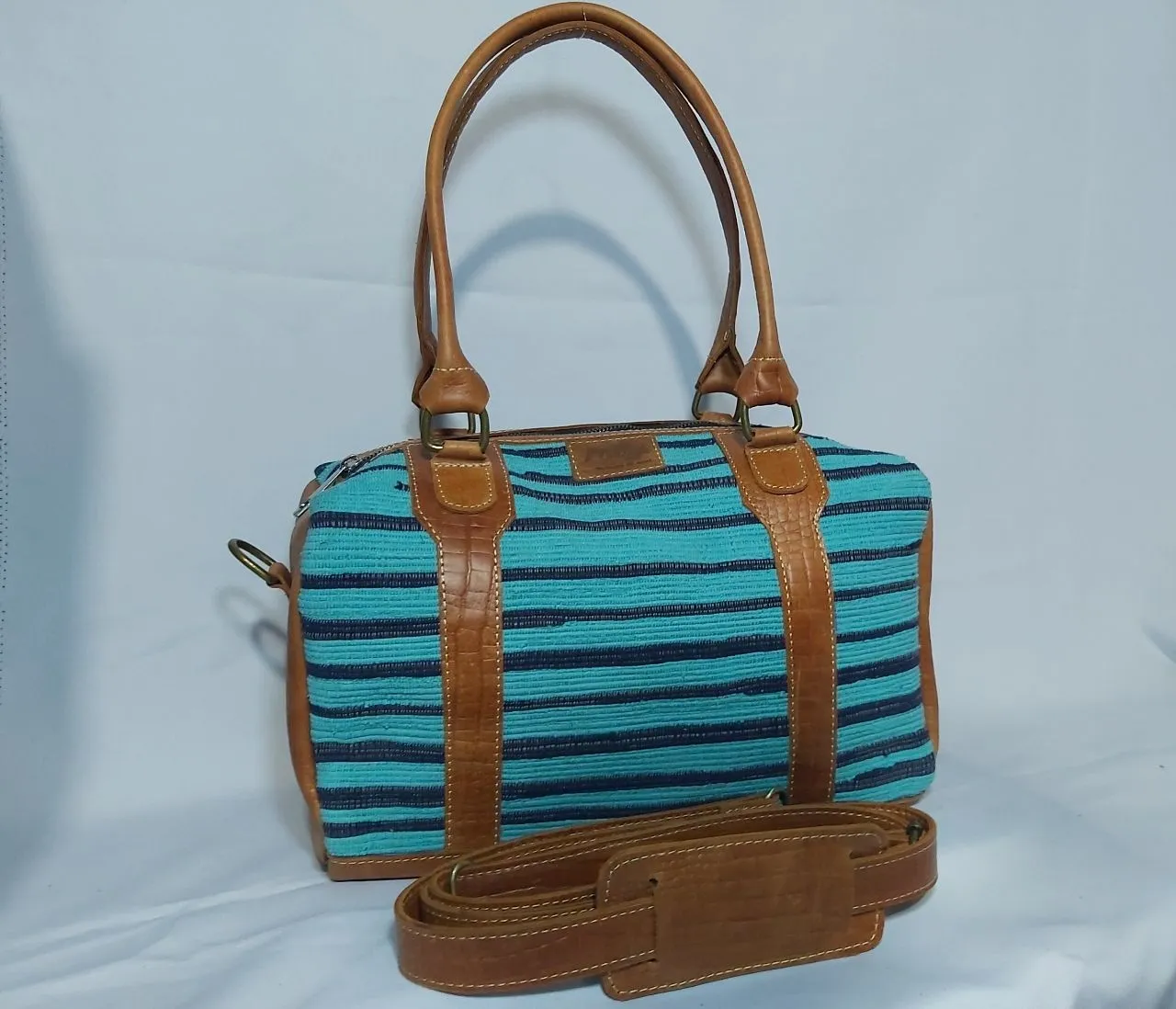Progress for 0 ad
Progress for 1 ad
Progress for 2 ad
Progress for 3 ad


Bezawit Habte
Addis Ababa, Ethiopia

Ethiopia’s waste crisis is no small matter. In Addis Ababa alone, over 3,000 tons of waste are generated daily, with plastic bags and textiles contributing significantly to the environmental strain. Nationally, around 386,000 tons of plastic are consumed annually, with only 30–40% being recycled. Textile waste adds further complexity, as discarded fabrics from the fashion industry often end up in landfills, releasing harmful pollutants.
Maleda Crafts stepped into this challenge with a clear and bold vision: to tackle waste by repurposing materials and turning them into beautiful, functional items. The enterprise collects discarded plastic bags and textiles across the capital and transforms them into products like bags, slippers, and rugs.
Maleda which translates roughly to ‘dawn’ in Amharic, was born out of its founder Alemayehu Mulat’s personal experiences. In his early career as a public servant, Alemayehu witnessed women struggling to raise children in poverty with little economic opportunity. Later, working with NGOs as project coordinator, he saw a way to unlock their potential through proper training and support.
But it would take the birth of his first child and seeing the piles of dirty diapers being thrown out before he could spring into action. A growing environmental consciousness complemented his goals of empowering economically disenfranchised women.
“We could recycle everyday materials into marketable, sustainable products,” the founder told Shega
The first attempts weren’t easy, and by Alemayehu’s own admission, they didn’t go well either. Yet, determined to make it work, he began gathering diaper covers, plastic waste, and textile scraps—materials repurposed from garment factories. With a small team, they collected, sorted, and weaved these materials by hand into sustainable fabrics, crafting bags, footwear, and rugs.
A practical and eco-friendly production process quickly took hold. After manually collecting the waste, the team of five sorts, cleans, and prepares the materials for a new life. The plastic is then cut, woven, and stitched with pure leather to form high-quality products. Alemayehu and his team now process upwards of 150 kilos of waste daily to produce an average of 10 items. Their catalog ranges from handmade leather sandals priced at 300 birr to leather women's bags costing around 1,300 birr.

Like any new innovative venture, Maleda has also faced several challenges along the way. Initially, working capital and finding a workspace were the main hurdles. But nowadays the company grapples with poor waste management systems and low public awareness.
“Waste management in the community is still very poor,” Alemayehu says. “Many people don’t see the potential in what they throw away.”
Another concern in textile recycling is the release of harmful microfibers into water systems. Maleda Craft addresses this by using careful hand-weaving techniques to maintain fabric quality while preventing pollutants.
At the heart of the enterprise is a team of passionate individuals who share a vision of creating lasting change. With plans to enter international markets, Maleda Craft is gearing up for bigger things.
“We are a group that wants to bring change by empowering disadvantaged women and promoting environmental sustainability,” Alemayehu explains.
Aspiring to become more than just a business, Maleda Craft looks to become a testament to resilience, innovation, and community. Alemayehu’s advice to aspiring social entrepreneurs is simple: start small, focus on your goal, and be innovative.
👏
😂
❤️
😲
😠

Bezawit Habte
Bezawit is a fourth-year Global Studies and International Relations student, passionate about volunteering, community service, and digital literacy.
Your Email Address Will Not Be Published. Required Fields Are Marked *